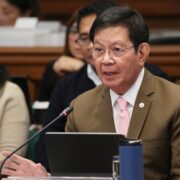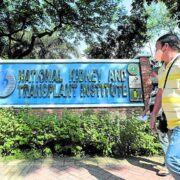Addressing the biggest crisis of our time

The landmark Advisory Opinion on Climate Change by the International Court of Justice (ICJ) made it clear: Countries must comply with their climate obligations or face responsibility for internationally wrongful acts.
As a young Filipina climate justice activist, it’s powerful to witness the world’s highest court address the world’s biggest crisis of our time. While the Philippines reels from a parade of typhoons, this mandate gives hope and a voice to the marginalized, enabling them to hold big, rich, polluting countries accountable.
This breakthrough began in 2019, when 27 Pacific law students launched a bold campaign that reshaped the global climate justice movement. Six years of struggle culminated in Resolution 77/276 and the most written submissions ever filed in the ICJ’s advisory history. From classrooms to courts, they made history.
With finance and reparations watered down in the United Nations climate talks, this serves as a springboard in the Global South to demand that the Global North pay its long-overdue climate debt. Rich nations can no longer delay in delivering higher climate finance at scale and a fully operational loss and damage fund.
A wake-up call for the Global North
The Paris Agreement called for urgent action. But a decade later, countries still fall short of the 1.5 degrees Celsius goal. In 2024, we saw record-breaking high temperatures that breached this limit. Still, Iran, Libya, Yemen, and the US (under Trump) remain outside the climate accord.
But the ICJ makes clear: even non-signatories have binding obligations. These extend beyond the Paris Agreement to include customary international law and treaties that must be applied coherently. The duty to cooperate in good faith is our strongest legal weapon; there is no more hiding behind nonratification.
The Court also underscored the duty to act with due diligence, using all available means to prevent harm. This raises the bar for precaution and eliminates the box-ticking approach to environmental and social safeguards.
Re-centering the Global South
Though not legally binding, the advisory gives the Global South powerful legal, moral, and political tools. It strengthens demands to cut emissions, regulate polluters, cooperate, and provide reparations to those hardest hit.
The Global South remains a hotspot for dirty projects, enabled by weak national policies and international financing from banks like the World Bank and the Asian Development Bank. Their billions in fossil infrastructure fuel a crisis of debt, economic fragility, and environmental harm. The ICJ ruling calls out this hypocrisy and demands accountability.
For the first time, fossil fuels were named outright. The ICJ stated governments must end fossil fuel production and subsidies. Their negligence is no longer irresponsible; it’s a crime. Climate criminals will be named and shamed.
ICJ also recognized the cumulative nature of harm: it’s not just about emissions, but about the acts and omissions that breach obligations. States must end wrongful acts and offer full reparation, restitution, compensation, and satisfaction.
The Philippines must rise from its perpetual victim status
The Philippines has long ranked among the world’s most climate-vulnerable. This is not just something I read in reports, but something I live through and continue to experience every day. Recently, 16 of 17 barangays in my hometown, Olongapo, were flooded by three typhoons. Families were displaced and my city went into full emergency response.
Yet just hours away, the 1,019 MW coal plant in Masinloc still operates and expands even under a supposed coal moratorium. Our government continues to support such projects while speaking of climate action, revealing a lack of political will. Nearby communities suffer, while typhoons return year after year.
It’s time for the Philippines to lead. Our leaders must reject new coal, gas, and fossil projects, and align domestic policy with international law. As host to the board of the loss and damage fund, we must remind rich countries of our suffering and demand unconditional, grant-based support. We can’t champion climate justice abroad while remaining complicit at home. The Philippines must rise beyond victimhood and lead with dignity.
These climate negotiations have been ongoing for decades, longer than I have been alive. But what struck me the most was the stark reminder of the ICJ opinion: governments’ actions and inactions will shape generations to come. Your legacy and protection of our future will not be measured by your words but by how you respond to these calls. Ahead of COP30 in Belem, we demand a fossil fuel phaseout, fair climate finance, and a direct, accessible, and equitable loss and damage fund.
More than a victory, the ICJ opinion is a warning: the era of impunity is coming to an end. It’s time to pay up.
—————
Ellenor Bartolome is the senior executive officer for policy, campaigns, and communications of the Philippine Movement for Climate Justice.

















